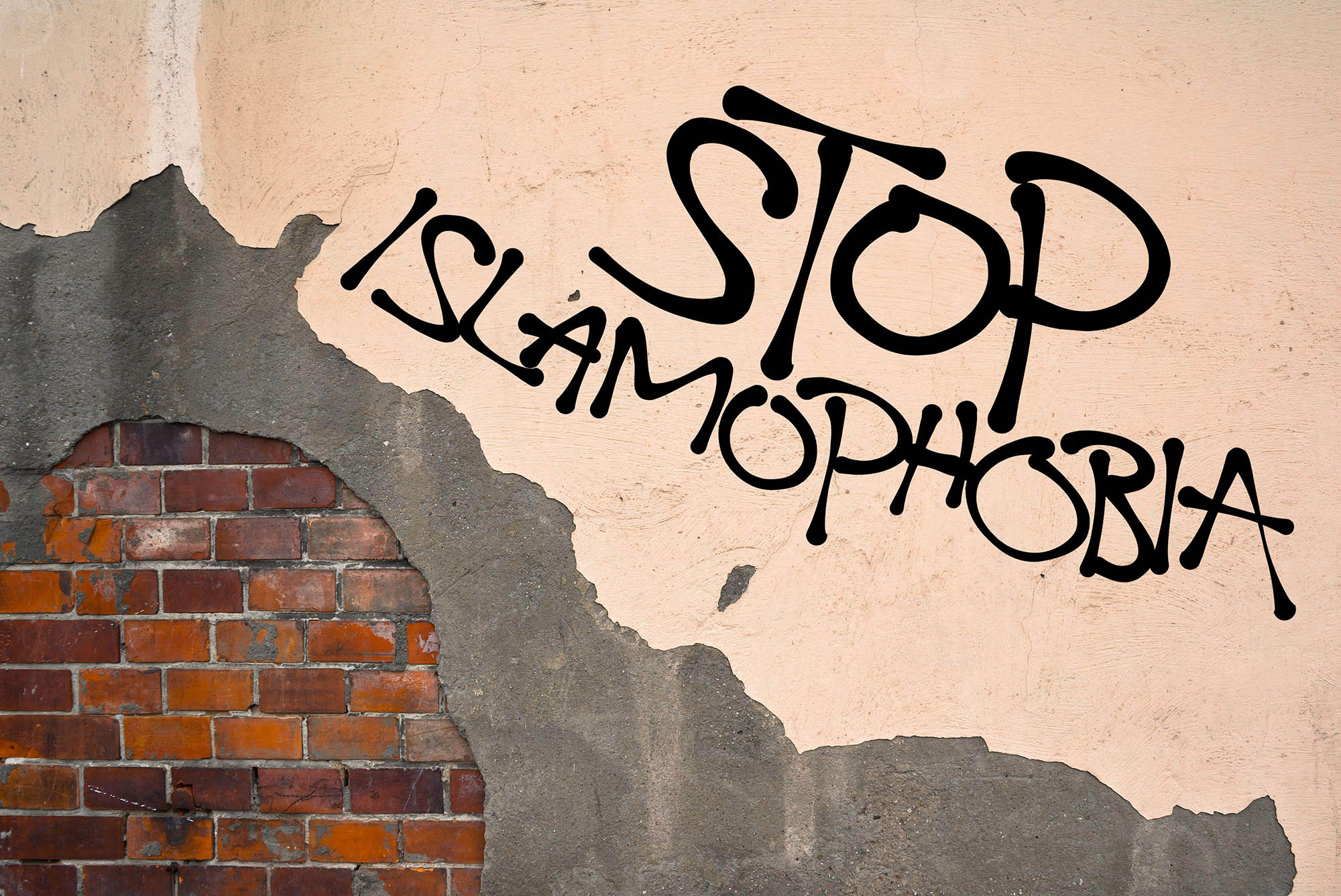Produced in Association with Latino Public Broadcasting (LPB)
And the Center for Asian American Media (CAAM)
“New Muslim Cool transcends race, ethnicity, class and religion. Like hip-hop culture, the film is all about irrepressible social transformation and empowerment.”
— Dr. Benjamin Chavis, Hip-Hop Summit Action Network
New Muslim Cool is Islam as you have never seen it. It is also hip-hop as you have probably never heard it. This new film, which opens the 22nd season of P.O.V., PBS’s award-winning nonfiction film series, gives audiences an insider’s view of a little-known cultural fusion between Muslims and street beats that has been developing since the very beginnings of hip-hop culture. The result is a surprising challenge to stereotypes of both Muslims and urban youth in America that encourages viewers to look critically at the “clash of civilizations” between Islam and the West.
Jennifer Maytorena Taylor’s New Muslim Cool has its national broadcast premiere on P.O.V. on Tuesday, June 23, 2009, at 10 p.m. (Check local listings.) American television’s longest-running independent documentary series, P.O.V. received a 2007 Emmy for Excellence in Television Documentary Filmmaking. The 2009 season of P.O.V. continues each Tuesday at 10 p.m. through Sept. 22, with two specials in November and January.
New Muslim Cool is more than another hybrid hip-hop story. It’s also the story of a man coming of age, facing his deepest questions about his faith, trying to keep his family safe and learning how to hold himself accountable. A decade ago, Hamza Pérez, born Jason, was a drug dealer on America’s mean streets. The child of Puerto Rican parents, he had two recurring, competing dreams at night: in one he was in prison by age 21, and in the other he was dead. New Muslim Cool is the story of how, as Hamza laughingly puts it, “both [dreams] came true,” albeit in unpredictable ways.
Indeed, when Hamza was 21, he was hanging out with friends and getting high when a chance encounter with an “old sheikh” transformed his life. The death he experienced was “a death of all my past, the negative,” he says. He gave up drugs and the street life and converted to Islam. He then went further, becoming active in forming a community of Latino and African-American Muslims, many of whom, like Hamza, were former street hustlers and drug dealers. The community ultimately moved from Massachusetts to Pittsburgh, Pa., with Hamza bringing along his son and, after the breakup of his first marriage, his daughter.
As part of their efforts to build a community that would reconcile their heritage with their new faith, Hamza and his brother, Sulíman, formed the rap group Mujahideen Team (M-Team). M-Team strives to use knowledge gained in the streets to put Islam’s religious message into a familiar context. Ultimately, Hamza would bring that message to prisons, fulfilling his other dream in a way he had never imagined.
Early on in the film, Hamza and Sulíman joke about the exotic hybridization their faith and community embody. “See, we don’t speak full Arabic,” says Hamza, “but we know Arabic Spanglish Ebonics.” The two men’s conversion has largely bewildered their family, who raised them as Roman Catholics. The family’s initial upset has been tempered by gratitude that the brothers’ new faith has gotten them off drugs and away from other dangerous pursuits. Yet the family also feels some discomfort over the tough lyrics Hamza and Sulíman use as M-Team.
With their unflinchingly critical words and intense stage performance — complete with flaming machetes — Hamza and Sulíman attempt to carve out a place for themselves in the tradition of protest poetry, up from the rawest roots of hip-hop. Within the Muslim hip-hop world, they are recognized as heirs to the tradition of artists like the Last Poets and Public Enemy, freely criticizing the government and many elements of modern society. But their music also draws scrutiny and eventually complicates Hamza’s life, even as he begins to grow and embrace a softer way of expressing himself.
The struggle to make his community thrive, raise his kids, build a new marriage and, paradoxically, deal with an FBI investigation of his group’s new mosque in Pittsburgh, Pa., all serve to deepen Hamza’s study of and thinking about Islam and the plight of the poor and imprisoned in America.
Hamza begins to reach out to prisoners, using his faith and struggles to inspire them. His work also leads him into surprising alliances with ministries of other religions that, like his own, seek to build a road to redemption from the nation’s jails.
Says director/producer Jennifer Maytorena Taylor, “New Muslim Cool came out of my long-standing interest in the power of pop music and culture to create social change and a deep feeling that we urgently need to look for common ground as our world grows increasingly diverse and interconnected. This is a story about who we all are as a country, making choices about our deepest values in tough times and continually redefining what it means to be American.”
New Muslim Cool is a production of Specific Pictures in association with Latino Public Broadcasting (LPB) and the Center for Asian American Media (CAAM).
About the Filmmaker:
Jennifer Maytorena Taylor, Producer/Director
Jennifer Maytorena Taylor’s works explore the connection between the personal and the socio-political, and frequently feature Latino themes and Spanish-language content. Her documentary credits include “Paulina,” which premiered at the Sundance Film Festival and was broadcast by the Sundance Channel; the Emmy-winning “Home Front,” a co-production with KQED-TV San Francisco; “Immigration Calculations”; “Ramadan Primetime”; and, most recently, “Special Circumstances,” which will air nationally on PBS as part of the Voces series in 2009. She is a recipient of the James D. Phelan Art Award for her body of work.
She has produced short stories for the public television series “California Connected” and “Keeping Kids Healthy” and co-produced Sophia Constantinou’s history of Cyprus, “Divided Loyalties” for the Sundance Channel. Jennifer also worked as an associate and co-producer with Lourdes Portillo on Corpus: A Home Movie for Selena (P.O.V. 1999) and Señorita Extraviada (P.O.V. 2002), two award-winning documentaries that had their national broadcast premieres on PBS.
Fluent in Spanish and Portuguese, Jennifer has worked throughout the United States, in Latin America and in Europe. She is a native Californian of Irish and Mexican heritage and was raised in Los Angeles and Vermont.
Credits:
Producer/Director: Jennifer Maytorena Taylor
Co-producers: Kauthar Umar, Hana Siddiqi
Cinematographers: Davíd Sarasti, Jon Shenk, Mark Knobil
Editor: Kenji Yamamoto
Original Score: Chris Strollo
Additional Music: Herman “Soy Sos” Pearl, Junoon, Sean Jones, Rey Nieves
Running Time: 86:46
Festivals:
• San Francisco International Film Festival, March 2008
• Al Jazeera Documentary Film Festival, Doha, Qatar, April 2008
• Human Rights Watch International Film Festival, New York, June 2008
• Film Society of Lincoln Center’s Independents Night, New York, June 2008






